#'inability to let characters feel negative emotions' is high on the list of things wrong with anw too
Note
thoughts on xmen red Jean
X-Men Red does a few things I like, including making Jean a spokesperson for mutantkind, nodding to her history as a mother, and playing with an audience expectation of Jean to be self-sacrificial.
However, Taylor doesn't really do anything with Jean over the course of 11 issues. Both the politics and the characters of the series are facile. Taylor has a chronic inability to set his characters up against hard choices or difficult situations in a way that will let them really grow. (He also has a need to pull in extras from every corner of the Marvel Universe, in a way that actively detracts from the characters whose stories he's supposed to be telling.)
The biggest thing wrong with Jean in X-Men Red is that she's one-dimensional. We don't get to see her anger or pain or flaws. The one time we see her expressing negative emotions, it's actually a false image created by Cassandra Nova to turn people against her. And I do think that the lack of character depth contributes to the weak politics - choosing love/hope/empathy isn't a powerful moment if we've never seen Jean falling victim to anger or despair, if we don't know that she truly has the capacity to choose rather than just being a one-dimensional creation who can only ever feel positive emotions.
#asks#Anonymous#jean grey#'inability to let characters feel negative emotions' is high on the list of things wrong with anw too#not quite as prominent there though#x men blogging#ch: heart and soul#s: xmr
11 notes
·
View notes
Text

Writing Characters with Depression
Ah, mental illness representation! So accurate and diverse!
Said no one ever.
Depression is one of the mental illnesses that are slowly entering the mainstream and becoming less stigmatised. Still, media and literature get a lot of things wrong. You're reading this, so clearly you're interested in what they're doing wrong, so you don't do it. You want to give me a well-rounded amazing character with depression in which we can feel represented, right? WELL, THANKS ANGEL, LET ME HELP YOU.
A couple of things before we start:
This is mostly based on personal experience. Mental illness manifests and feels different for different people, so always aim to have a variety of perspectives.
Trigger Warning: We're going to discuss some aspects about depression that might upset and hit too close to home to some people, so proceed with caution.
I'm not going to go into detail about the symptons, causes and treatment, as this is not a medical manual, but a writing guide. So we'll be focusing more about positive characterisation of people with depression in literature/media.
Let's get to it. And why you're at it, have a Malteeser for everytime I say the D word here.
How depression might feel for someone who has it:
Lack of energy
A feeling of constant fatigue
Hopelessness, thinking things are never going to get better
Losing interest in things, even things you used to love
Inability to concentrate, even on simple tasks like reading something or watching a tv show
Not seeing the point of living
Feeling like everything bad that happens is your fault
Seeing things in a negative light
A lack of self-esteem and self-worth
Loss of sex drive
Feeling irritable
Feeling suicidal
How can it manifest?
Sleeping too much or too little
Eating too much or nothing at all
Being self-deprecating, even if it's in a funny way
Withdrawing oneself from social activities
Moving and talking slowly
Neglecting one's appearance, ie. Not showering in days, not brushing your teeth, wearing the same clothes over and over
Abusing substances like alcohol, weed
Self-harming
Quitting your hobbies
Having a messy room, or leaving dishes pile up as you're unable to perform everyday taks
Quick to snap and get irritable
This list is not exhaustive, and it's also good to do some research, but these are some clear common signs!
Now, let's go for the bad examples:
Common tropes of characters with depression that make me want to throw away the book/tv to the bin
The Oscar the Grouch type: Nothing will make this character smile. They are determined to be a negative nelly and have a big black cloud over their heads.
The Sleeping Beauty: how do we know they have depression? Well... They're in bed. People with depression spend all their time in bed, right?
The Emo Teen: they wear black, they have studded belts, they wear stripes and eyeliner and listen to MCR, and have a monotone voice... That means they're depressed, right?
The eDgY eDgE eDgEdton: Omg, they're depressed, that's so edgy and cool. They wear flannel and write angsty song lyrics with their marker over the wall. They flip tables and cry handsomely while smoking weed. That's depression, right?
The Undestructible Teen: Life is tough, parents are getting divorced and Jason has left us for stupid Leyla, but let's not address our problems. We'll cure our depression instead by partying everyday and chugging a bottle of vodka. Oh-oh, have we drunk too much? No worries! There are no consequences to our actions or any long-term impact to our health. We just need the Sensible Friend™ to call us out and we'll grow out of our depression, which brings me to...
The Miracle: Did they have depression in episode 1? Well, THEY'RE CURED NOW! And all they had to do is just a little pep talk and get out of bed!
WELL, TO THE RUBBISH BIN TO ALL OF YOU, OFF YOU GO!
Things to take into account when writing depression:
Depression is an illness, not a character trait. Although it's true that it shapes the way you think and view the world, depression doesn't define your identity, and people with depression have a personality outside of their mental illness.
There are many different types of depression. There is depression with psychosis, there is unipolar depression and then if it's paired with episodes of mania it's called bipolar disorder (comment if you'd like a post on that!). Also, depression can mix differently with other mental illnesses, such as anxiety disorders. Unipolar depression is quite common, but other types need more positive representation too!
People with depression still have sense of humour. In fact, some people with depression are actually some of the funniest people. Although depression can make you see everything in a negative light, humour is one of the best coping mechanisms. It can serve as a waybof deflecting attention from themselves so their loved ones don't get worried or making people laugh is the only thing that can lift up their mood. Whatever it is, characters with depression can still be the life of the party.
There is not only one way of going through depression. Some people are bed-ridden and have a complete lack of energy, but some people seem to be quite high-functioning, go to work, do the groceries, but feel miserable inside. Some people might even go through both things through their lifetime. The point is that depression affects everyone differently, and it varies according to the type of depression you have, your life situation, and even the stage in which you're in.
It's not just sadness. Sometimes, it's not sadness at all. It might be lack of energy, hopelessness, a sense of losing direction and purpose, and in the darkest of times, losing the will to live, to keep fighting. It's important to understand the spectrum of emotions if you're writing a character witj depression and not reduce it to just "a bad mood".
Depression is not always due to trauma. The majority of the stories of depression we hear is a person reacting to a major life event: the death of a relative, parents divorcing, losing a job... But sometimes there is not a real life trigger from depression. Sometimes, it's a chemistry imbalance or simply a hereditary cause (attach link). Some people with depression lead stable lives surrounded by loving people and still have the illness, and this creates a feeling of frustration and self-blame, because you feel you might be at fault for being depressed. This is something a lot of people with depression struggle with, but it's not widely talked about.
Okay, Rogue, so how do I write a character with depression?
Well, my little sweetling, let's do some Dos and Don'ts:
Dos:
Wonder why you want to write a character with depression. Is it to start a conversation? Is it to provide visibility and representation to the illness? Is it to show how the plot struggles have affected your character? Or is it just to give them "an edge" or make them somewhat interesting? Misrepresentation can be as bad as lack thereof so make sure you're doing it for good reasons.
Read own voices books and testimonials about people with the illness. When writing mental illness, most people go to the symptoms page on Wikipedia, but never think to research about how people affected by depression experience it. This will give you a bigger scope on all the different ways depression can affect a person, and will make your character less of a "manual mental illness" type.
Create hope for this character. Yes, things can go wrong when you have a mental illness, and suicide rates are high for people affected by them. We know those stories, and they are necessary that we're aware of them. But we also need positive stories. Chances are, someone with depression will read your story, and to see s character with a happy ending can give them a glimmer of hope that is so much needed during dark times. We need more positive stories about mental illness.
Use trigger warnings. Some aspects about depression (self-harm, suicide, substance abuse...) can hit too close to home for some people. It's important you warn your readers.
Make them interesting, please! Depression does not equal boring. Make them charming and funny and still hopeless, make them be surrounded by loving relatives and still feel miserable, make them be the most helpful friend or loving daughter and still be unable to help themselves. Giving a character depression is not going to be enough to make them interesting, so make sure they have a well-rounded personality.
Don'ts:
Romanticise the illness. Do you think depression is lying in your bed in your black clothes listening to Nirvana on loop? Then you're very far off. Although I previously mentioned depression looks different from everyone, things are likely to get ugly. Depression is more than drawing angsty black ink portraits in your sketch pad. It's having your eyes dry and hurt from staring at your phone screen all day. It's your bones aching from sitting on the sofa until 3am dying for some sleep yet being unable to move yourself to bed. It's blood streaming down the sink from brushing your teeth after not brushing them in days. It's the stale smell of the tracksuit bottoms you'be been wearing for weeks. It's your hair feeling like cardboard from all the product and dirt that's been accumulated after not showering for days. Yes, this all sounds tough, but that's because depression is tough and ugly for those who go through it. Show it.
Bash on medication. Some people take it, some people don't, but being negative about it in your content can put people off it, people who might actually need it.
Have the character "grow out of it". If they have depression in chapter one, they're very likely to have depression in chapter 10, or even in book 2. They might learn coping mechanisms along the way, but depression can take months, or even years to treat, so we won't believe you if you say they've been cured in 3 days. Or maybe:
They were depressed, but they have to save the world, so they grew out of it. Yeah, right mate, like if pep talks were that useful people would spend loads of money on therapy and medication. Riiiight. Your hero might eventually get up and save the world, but the depression will still be there, it won't get cured by saving the planet, it will be waiting for them at the end of the road, so be ready to write that.
Cure the character with a love interest. Ah, they had depression, until she came to their life. Now they are cured by love! Nah, mate, they will still struggle with depression even when they're madly in love with the most perfect love interest. Some people with depression have loving stable relationships, so this trope makes no sense.
In conclusion / TLDR:
Depression has a lot of different faces, not everyone experiences it the same way or is affected by it the same way.
It's not always triggered by life events; sometimes you get it and that's it.
It's more than just feeling sad.
Some people are quite high-functioning despite suffering from it.
Don't glamorise: show the good, the bad and the ugly.
Be consistent: if they're depressed in chapter 1, they won't be able to grow out of it in chapter 2.
Don't be negative about medication or therapy.
Use TWs for sensitive content.
Tell positive stories and give a glimmer of hope.
Wow! That's a lot, isn't it? You're probably thinking "this is hard to write!", and that's because it is. This is why I asked you to think why you want to do this. Hopefully it didn't put you off and you still want to give the community some good representation.
Anything I left behind? Any more posts like this you'd like to see? Hit me up with comments!
Good luck with your writing and please, hit me up with any questions or talk to me about your OCs and WIP about mental illness. Peace!
Useful links:
Nhs website on depression
Mind guide for depression
If you're struggling and need someone to talk to
#writeblr#writing advice#writing tips#original characters#mental illness#mental illness representation#writing mental illness#mental health#depression#am writing#fictional characters
15 notes
·
View notes
Text

I wonder if all people are born equipped for life’s passions. And if they are, is the capacity for them the same for everyone? Does everyone start out with a genetically determined amount or is there an infinite level that is sometimes achieved and sometimes not, depending on what happens to each of us? I’ve spent quite a bit of time thinking about this. Some people seem like they’re boiling over with passion and others act so subdued that it’s hard to know if they’ve every experienced a single moment of that powerful sensation.
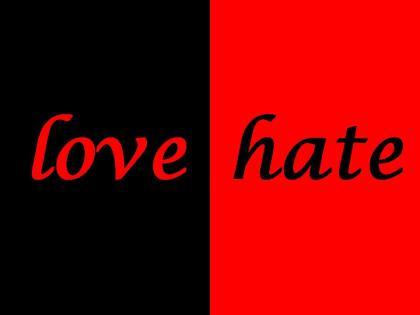
I think passion has lots of different connotations, both positive and negative. Some passions are conscious and others lurk below our mind’s surface. They can be enriching and growth-inducing or deleterious and damaging to our health. Passion can be enthusiasm and avid devotion. It can be overwhelming in both rage and love. It can be intense sexual attraction. It can be vehemence and anger. Probably it’s combinations of a wide range of feelings and this can be very confusing. I know that I’ve felt all types of passions ever since I was a little kid.

When I was about five, I got a chameleon. I loved it so much I squeezed it to death. What a horror. I was way too young to understand the implications of the potential for destruction associated with a positive feeling. But I learned more and more about that as I grew up. My parents told me I was born loving everyone and everything and that people loved me back. My mom said she was afraid someone might steal me, most particularly my dad’s sister, someone she detested. My older brother told me he first remembered being truly happy when I came along. Sad for him but good for me. I did love so many things with a passion. I loved my parents. I loved warm milk. I loved animals. I loved fudgsicles and chocolate popsicles. I loved playing outside. I loved school and school supplies, especially crayons, erasers and glue. So I guess I started out with my fair share of passions.
As I got older, I extended all that passionate love to people. I loved my friends. I started to love boys. I loved sports and movies. I loved justice. So much passion. It wasn’t long before I started getting knocked around by reality. Reality was that just because I loved what I loved didn’t mean that I was going to reap big returns on my passionate investments. I loved school but after 9th grade, it mostly bored me to death and as I went off on my own to learn, my grades tanked. I had just enough natural talent to take me into college but nothing about that structure worked any better for me at that level.
Then I realized that the just world I dreamed of may as well have been in a galaxy far, far away. The disappointment from that discovery ignited my negative passions which are still going strong today. Always something to be furious about and to fight against. Fuel for my engine.
I loved participating in sports but that brought me negative attention. I wanted to be an attractive girl but my youthful participation brought me the nickname “moose” which had a profoundly negative effect on the joy I found as an athlete. In my junior year of high school I cut 60 PE classes and as a senior, had to make them all up, two for one, in order to graduate. On swimming days, I was soaking wet on and off for hours. But I still loved sports although I became more of an observer rather than a participant. I still have my swimming but at one point I dreamed of smashing home runs and spiking volleyballs for a long time. I made it back to volleyball as an adult, playing while pregnant. Maybe that vibe is why my daughter turned out to be an exceptional athlete in a time that was somewhat kinder to women than the days of my youth. Although not yet kind enough. But let me stay on track here.
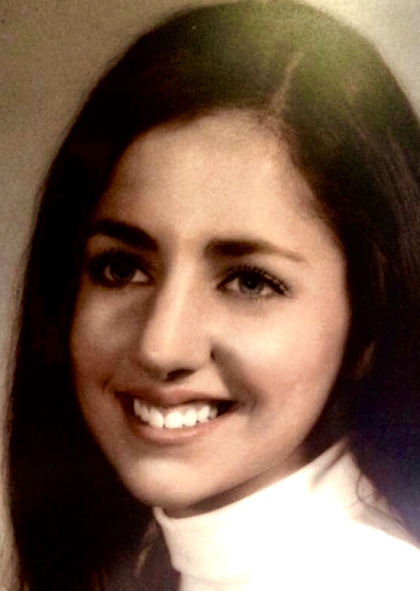
I was a passionate friend and potentially a passionate girlfriend when I was a kid. I fell in love easily. And I stayed there. There’s another component to my particular brand of passion – loyalty. My husband and my kids always told me I was the most loyal person they ever knew. That’s probably a fair assessment. Once committed to someone, at least in my own mind, if not in actual practice with the person I’ve sekected, I stayed put. I’m hard to get rid of once I’ve made my choices. Despite the fire that burns in me so frequently, I’m not the type to flame out. My burn is slow and long-lasting. A lot of disappointment and pain have to happen before I walk away from someone. I guess it’s fair to say that I have personal standards of how people should treat one another, my rules, for sure. But I’ll bend and accommodate for a long time before I give up on a person. Over the years, I’ve developed what I call my permanent list. I have occupants on that list who said or did something egregious enough so that I know I’ll never forget it, at least as long as my brain is functioning. But for the most part, that list is of those individuals who are beyond my forgiveness. I know that’s not a very politically correct attitude in current culture. Forgiveness is a real thing advocated around me. Being unforgiving is supposed to be bad for you, toxic and unhealthy.
Your Greatest Strength

1
Social intelligenceBeing aware of the motives/feelings of others and oneself; knowing what to do to fit into different social situations; knowing what makes other people tick.VIRTUE CATEGORY: HUMANITY

24
Forgiveness Forgiving those who have done wrong; accepting others’ shortcomings; giving people a second chance; not being vengeful.VIRTUE CATEGORY: TEMPERANCE
I took a personality trait test from a Yale-sponsored class a few months ago. You answer all these questions and a list of your character traits ranked from best to worst is generated. My best trait was emotional intelligence, followed by loyalty and my worst was the inability to forgive. Sounded right. And it works for me. Michael was always trying to get me to let things go and be more forgiving. He said my hot rage and grudge holding was going to damage me physically. Well, look who’s still here and who isn’t? I’m living on the terms that suit me.
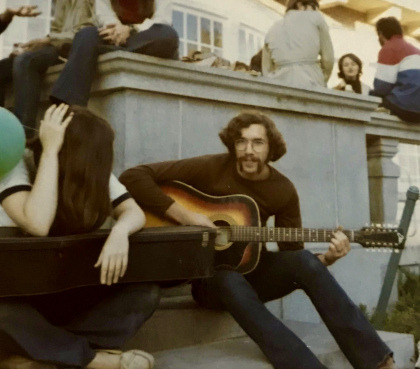
I guess I got the most bashed around emotionally by my first serious college boyfriend. I thought I was going to marry him. The truth is, I thought I was going to marry everyone I ever loved, going all the way back to when I was five years old. But this was the first genuinely reciprocated love I’d felt as a grownup and despite warning flags about not being ready and immaturity, I was convinced that if I fought hard enough, I could make this happen, even with evidence to the contrary popping up regularly and painfully. We were together on and off for three years. One morning after feeling that we’d had the best night of our life, I woke up to him telling me that we needed to break up and that things just couldn’t work. I was astonished, hurt and enraged. As he made his way out of my apartment, I followed him into the street, screaming at the top of my lungs that he would never find anyone who loved him the way I did and that he’d regret this decision for the rest of his life. My roommate and another friend dragged me back into the house as his metallic blue Chevy Hornet pulled away.
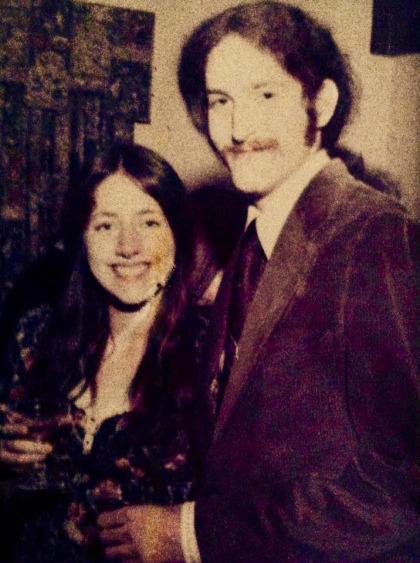
The fact is, he did figure that out later but by that time, I’d mostly recovered and was with Michael with whom I spent the rest of his life. Sadly, not the rest of our lives. Michael helped me rebuild myself and to believe that I could trust someone and reestablish my belief that a lifelong positive passion was possible. I’d already figured out that I could hang on to my negative passions about feminism, politics, economic justice, the health of the planet and the like. But I wasn’t sure about people. One of the places I put my positive passions was to sports, both teams and individuals. I could afford to invest myself in those without personal disappointments that had left me flattened and despairing. I picked my loyalties and stayed with them. I had favorite teams and players. I watched everything, football, basketball, hockey, swimming and became an Olympics junkie. As time went on I added tennis and soccer. I still remember the uniform numbers of those individuals who for whatever reason, won my heart. Jean Beliveau, #4 – Montreal Canadiens. Doug Mohns, #11 – Chicago Blackhawks. Doug Buffone, #55 – Chicago Bears. Fred Biletnikoff, #25 – Oakland Raiders. I could go on and on. A lot of my friends were surprised that I was so into sports, as many of them, particularly the contact ones dominated by males, seemed in direct conflict with my feminist politics. But I didn’t care what it seemed like. My personal passionate commitments had cost me a significant amount of emotional angst. I think I was born with a fairly deep reservoir for giving but I’d come to realize that when I put myself out there, I’d best be prepared to be doing it because I needed to for me and not because of what I expected in return. I’d had a lot of disappointment from family, friends and lovers. With sports, the worst that could happen was that your favorites could lose. The pain threshold for those things was tolerable for me, easier than all the personal disappointments. At least, it always had been for many years. When the silent switch happened, I really wasn’t aware of it at all. I’ve only just figured out that my lines had gotten blurred below the surface of my consciousness because of what life dealt out to me. I was too busy in the living of it to recognize that I’d set myself up for a whole new undoing.
So these sports. As a Chicagoan and a southsider, I loved the White Sox. I branched out and embraced the Cubs. I was a hockey fan and I sat with my dad as he agonized over DePaul’s basketball team. Except for golf, I’d watch almost anything. Eventually, tennis got my attention. I watched the women, Billie Jean King, Chris Evert, Martina Navratilova, Steffi Graf and of course, finally Venus and Serena. I admired their skills and grit. But I always loved the boys and most particularly, the ones who behaved well, rarely had tantrums or broke their rackets and in general, seemed to play against that spoiled brat type. No John McEnroes or Ilie Nastases for me.
I liked the cool Swede Bjorn Borg, who played like a smooth machine. After him, it was Pete Sampras, who was just a kid when he started and had a long 14 year career, complete with those beautiful serves and the tenacity to keep playing after vomiting on the court from sickness and dehydration. The civilized guys. I made an exception for Jimmy Connors sometimes because he had high entertainment value. There were a few Australians thrown into the mix and the Croat Goran Ivanisevic who had sporadic talent but took forever to win the big tourney. But in the middle of Pete’s reign, Roger Federer appeared on the scene. And that was all she wrote for me.
Federer broke into the big time as a teenager and was kind of a punk for awhile. But the tragic car wreck death of his Australian coach when he was 21 was a life changing event for him. Between that and his relationship with his older girlfriend who eventually became his wife, he pulled himself together and became who he is today, a brilliant champion, a genuinely loved public figure and a generous philanthropist. In short, my favorite tennis player.
Federer’s been playing for 21 years. I’ve watched him countless times and always enjoyed his grace, elegance and tenacity. For most of those years I watched him and the other players during the four major tournaments, the Australian Open, the French Open, Wimbledon and the US Open. There was a lot of other tennis happening off my radar, many tournaments and point systems for rankings. I didn’t really care about that stuff. I was happy with what I saw, read articles so I had some idea of the background for the majors, and was generally content.
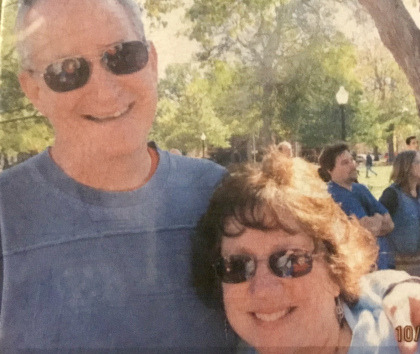
When Michael got sick seven and a half years ago, that was where I was at. As we processed his disease and what we knew would be a limited future, I was trying to get a handle on interests that would distract me from the constant pressure of anticipating death. Michael liked tennis too and had played for years as a young man. Often we watched matches together. But as time went by and we rode the waves of anxiety, I started to seek out more and more information about tennis. We’d switched cable tv providers and the Tennis Channel was included in our package. I realized that there were all kinds of tournaments and that Roger participated in lots of them. He was famous for holding records in places that had never crossed my radar. And we had a DVR. I started taping everything. When I had nothing to do, I started watching more tennis. I liked other players but Roger was the one. As the months of Michael’s illness progressed, we both labored under the strain of wondering how much time we had left to enjoy our life. Sometimes I drove my reserved husband crazy, wanting to talk through everything all the time. He was in treatment, often tired and in need of rest. I had lots of time on my hands but I wanted to stay nearby, soaking in every minute of life with Michael. So I turned to the box where Roger waited in the DVR. He was such a joy to watch. Healthy, easy and an amazing contrast to my precious guy who was carrying such a huge load. Over time, I decided that who needed a DVR when you could set an alarm and watch a tournament live from Australia, China or the Middle East? We didn’t really have a normal routine or schedule any more so I could make my own hours. As years went by, Federer’s wins or losses began to affect me more and more. The worst time came in 2016 when he sustained a knee injury while bathing one of his kids. He decided to withdraw from the professional tour for months while he rehabbed thoroughly and tried to decide if he could return and play at the championship level again.
I was worried about it but at the time I was really focused on the stretch of good health Michael was enjoying so we took advantage of an excellent fall and traveled a lot. I had concerns about some signs of immune system letdown in Michael but as late as December, 2016, we were in our happy place at Starved Rock and life seemed even and predictable. Unfortunately that languorous period was short-lived. By the first week of January, Michael’s behavior was unusual. His appetite was diminished and he had some odd moments when he wasn’t making a lot of sense. We went in to see our oncologist who did some bloodwork and ordered a scan. Everything came back clean. So on we went. Things got stranger and stranger. I began to believe that there was an occult return of Michael’s cancer and began a nagging process that drove him nuts. He wanted to leave well enough alone and I didn’t. We began bickering. Right around the same time, Roger was getting ready to emerge from his medical exile and enter the Australian Open.

As days went by, Michael’s behaviors became odder and odder and I kept dragging him back to the doctors. Meanwhile, Roger was winning match after match. I was up in the night, watching him in real time and trying to avoid arguing with Michael who was annoyed with me. The doctors kept finding nothing. On January 29th, 2017, I had the pleasure of watching Roger win his first major since being injured.
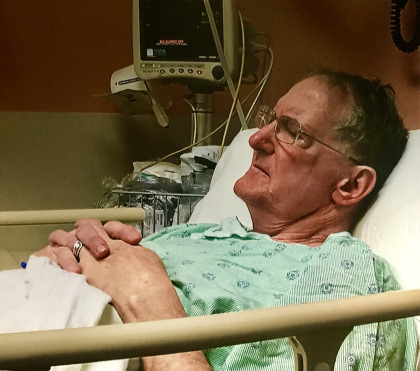
On January 31st, I prevailed upon Michael to let me bring him to the ER to see if we could get him a brain MRI, the only test he hadn’t had. By that night we had the dreadful diagnosis of carcinomatous meningitis, a rare manifestation of certain solid tumors that’s becoming more common as people survive their original cancers for longer periods of time. We were devastated, Michael even more than me as he’d believed the continuing positive reports while I knew something was terribly wrong. We had a 32 day siege in the hospital and then I was able to bring him home in early March. The median survival time for this disease was 4 weeks from diagnosis. Michael hung on for almost seventeen.
Meanwhile, the French Open began close to the end of Michael’s life and I continued to watch through June 11th. I remember thinking how ironic it was that Roger’s playing bookended the last months of Michael’s life. When July came, along came Wimbledon. I watched all of it and Roger emerged victorious. That highlighted my summer of preparing for the celebration of Michael’s life which was planned for December. When that was over, I stared down 2018, trying to figure out what to do with myself. I started this blog on January 1st. I was in the midst of planning my 50th high school reunion and also wanted to do a little traveling.
I finally landed on the Western-Southern Open tennis tournament in Cincinnati, a chance to see Roger in the flesh for the first time. As he was getting older I figured I’d better get that bucket list item done. Additionally, the Laver Cup, Roger’s creation was happening in Chicago, at the same time as my reunion.
I bought tickets to that as well. Both events were wonderful and I was so glad I went. Roger won some and lost some and I felt satisfied. But as time passed I found watching him, especially when he lost, to become more and more stressful. I was aware of the negative feelings but not sure what to do about them. Each match got worse and worse. This was not supposed to be my relationship with sports. I was irritable, frustrated and hostile. I could barely stand being with myself. When my son was around he tried to be comforting but I was basically so obnoxious he’d wind up leaving me to my own devices. I started thinking really hard, going back over the seven and a half year history of Michael’s disease, death and this mourning period. A lot has happened to me during that time. I spent a lot of emotional capital during those years. I spent an extraordinary amount of love on my marriage, so much that I often wonder if I can love anyone or anything new ever again. Even a pet. And then just this past week in the midst of an ugly US Open for Roger, I recognized what I’m referring to as a silent switch. Somewhere back there, as I recognized that my time with Michael was running away, I put a lot of my heart into Roger, a sports guy who was supposed to be a distraction, not someone personal. As his fortunes ebb and he gets closer to retirement I realized that my outsized reactions are more like living through an intimate loss instead of just watching an athlete’s life come to its normal conclusion. I realized that I’d transferred some of my feelings about Michael’s absence to a weird anticipatory despair about Roger’s career coming to an end. How bizarre is that? Probably not very. Roger’s trajectory is another ending, a metaphor for what I’ve been coping with for a very long time. I didn’t recognize exactly when it happened but I know it did. And acknowledging the inappropriate outsized reactions I was having helped me see the need to face this metaphor for what is – a familiar road twisted into an inappropriate level of importance. It’s time to set it back in a more normal place. Ironically, during this week of internal probing and exploring, I’ve been outside in my garden a lot. I had no trouble identifying two adult butterflies, feeding, still strong but battered by predators, perhaps by wind. But still living out there in the world. I was aware that I identified with them. No silent switching in this case. Awareness is hard and often mysterious. I’m going to keep going after it. It’s better than living in the dark.
The Silent Switch I wonder if all people are born equipped for life’s passions. And if they are, is the capacity for them the same for everyone?
0 notes
Text
Submission - Pre college stress
Hi, I really love this blog and the work you do! Like I love how you help people. I realise by the time you reply to this submission it probably won’t apply to me anymore but there’s nowhere else I can I get these feelings out and they are really stressing me out. I’m sorry for the babble, I’m really bad at condensing and showing what I’m trying to say in a logical way.
Today was a college taster day. The entire day was hell for me. I spent 5 hours (not literally) trying to tell one of the teachers my name without saying sorry every two seconds and spacing out (I space out a lot).
Throughout the day we had to go to the classes of the options we picked so they could answer questions and explain what the course was. Honestly it was horrible, people from my primary school were there as well as so many people from my high school and it was just awkward and humiliating being surrounded by so many popular and happy people who had already forgotten who I was. I felt so, guilty? It was like this sort of guilt when I found where my friends were sat and joined them, like I was this tag along and I realised how quickly I would become a loner, I knew it was going to happen, my friends are really outgoing and open people and I’m so reserved and making friends is so horribly hard for me, I just didn’t figure it would happen so quickly.
There was this girl I met in chemistry who was so sweet and chose to sit next to me even though there were a million other chairs to sit on but I’m 90% sure I scared her off with my inability to form a whole coherent sentence.
I just I feel empty, irrelevant, terrified, so confused, like I’m doing subjects I chose 6 months ago off the top of my head that I don’t really take interest in but everyone seems to for me, I have no friends, I’m so easily mocked, I know i’m not beautiful or talkative. I just I’m so tired of this feeling, it’s like this pressure squeezing my brain, it isn’t potent but it’s always there. I’m so scared of being lost and alone, I’m terrified of how college is going to be and I hate how everyone already knows me and has categorised me.
Exams basically ruined me and I don’t want to go through that whole crisis all over again. Going to the taster day reminded me of who I am to these people, I am not the person I am in my head when I’m sat at home 100% confident and content being by myself, I don’t want another two years of repeating I want to die (not literally I’m not suicidal I don’t know how to explain I’m just bitter not suicidal) in my head throughout the day and unhappiness and panic and just non stop crying. But I have no other option even if I feel the need to escape so badly.
So I’m just asking if you have any suggestions on how to contain these emotions and how to feel less terrified of talking to people. Thank you!
Hey love,
First, let’s learn some breathing techniques, okay? Whenever you start to feel overwhelmed, just take a moment to breathe. So take a long breath in through your nose slowly. You can do it over a count of five or just until you feel that your lungs are fully expanded. Then exhale slowly through your mouth. It’s best to close your eyes and imagine your lungs as balloons. You’d want to fill them up to their fullest potential and slowly exhale until you’ve flatten the balloons and repeat.
Second, let’s address your interactions with people. I understand that you said your friends are pretty extroverted and you’re more introverted. I think you should think of the reasons why you hang out with your friends and why you like them. It’s hard for introverts to be friends with extroverts because extroverts can be exhausting to them. However, if you can figure out why you like hanging out with them you can try and see in their light. You may also be a very shy extrovert. I don’t think it’s uncommon for people who like being around others to still feel nervous and scared. I think of myself as someone who is very friendly and easy going but I get mortified still at the thought of meeting new people. I rarely go to parties or gatherings when I know my friends won’t be there. So I suggest that you make a list of reasons why you get scared or nervous around new people. Are you scared that they’ll think you’re weird? Is it around all people or just people you think don’t fit in your clique? For example, if you were around people who share similar interests with you, would you feel more comfortable around them?
Once you figure this out, it may help you make friends. You don’t have to make friends with everyone. You can be friends and talk to people who share similar interests as you. College is sometimes easier than high school, in my experience. Inc pledge, I didn’t have to talk to every one. I spoke to some classmates but I mostly made friend with people in my major. They shared the same love for theatre and we connected on that level. So for me, college was really being around a big group of people who have the same passion as I am and that made it easier to make friends. However, I also knew that I was scared of when it came to meeting people. I made scripts for myself in case I met people I didn’t know very well or didn’t share many interests with right off the bat. I practiced them and made small talks to introduce myself. So I think if you can figure out what you’re scared of and what is making you nervous you can find various ways to deal with them. It may not solve everything but it will help some. Remember that you don’t have to always friends with you. It’s okay to have lunch alone without being a “loner.”
Thirdly, let’s address your anxiety. Have you thought about talking to a counsellor or your doctor about your anxiety levels? It may help to talk to someone about this and figure out what’s causing the anxiety. It may simply be nerves but it could be more. I think it’s worth talking to a professional about it. To figure out if you may have an anxiety disorder or if it’s caused by every stress that’s worsen when you’re exposed to new stress, does that make sense? For some people, they’re just normally stressed out so anti- anxiety medications help them breathe a little and it makes thinking easier in some situation. So I think talking to someone may help you become less terrified of talking to people.
Lastly, I highly, highly, recommend you work on some confidence and self-esteem building techniques. You don’t have to be “ beautiful” or “talkative” to be liked or loved or make friends. You just have to be you. And you can be introverted if you want to. You can be anything you want to be. So take a few notes
Don’t drag yourself down. Stop berating yourself for every little mistake.It’s okay to make mistakes. You’re human. You don’t have to be “perfect” according to someone’s definition of it. You don’t have to be talkative and funny all the time. If your friends had the same standards about themselves, would you say “Yeah you’re not beautiful or talkative so you’re gonna be alone” or would you comfort them and remind them that they’re human and they’re good the way they are? Do the same to yourself. Treat yourself as you would a friend.
Challenge your negative thoughts. Ask yourself what evidence you have to support any of the negative thoughts you have. For example, you said you scared off the girl in chemistry. Did she run away? Did she show some signs of being scared or weirded out? You may think something and be completely wrong. So ask yourself for facts that support your way of thinking. She probably was just as nervous as you were and her nervousness came off as being scared. You probably appeared the same to her.
Reinforce positive thinking. I’ve been thinking about this a lot. I think it’s important to remind yourself that it’s okay to be you and it’s enough to be you. I recently fell in love with a musical called Dear Even Hansen and in it the lead character who has social anxiety had to write letters to himself saying “Dear Evan Hansen, today is going to be a great day and here’s why..” I think it may help to do that. To remind yourself of the good things in life and to remind yourself that those matter. While you may not be talkative, you may be smart. You may be funny to your friends. You may be kind. You may be witty. You may be talented in something that not a lot of people know. Remind yourself of your good qualities. Don’t compare yourself to others.
Get to know yourself. You said so yourself that you’re not what you seem like. So get to know that person a little more and find ways to bring out the real you. It’ll be hard but it’ll be worth it. Know your hobbies. Know your passion. Know your interests.
When you’re in college, push yourself to be around people. Join clubs that peaks your interests. College offers a heap of opportunities to find your place. Get to know people in your major. Join Whovian society. Join knitting club. Join Harry Potter club. Do community services. Attend meetings for anything that peaks your interests whether it’s on campus or in the community. Get involved. That’s the key to not being a loner. I found that if you don’t push yourself to get involved, you’ll just close yourself off and really become a loner. And it’ll have nothing to do with your qualities.
Remember that ti’s okay to get help. Colleges offer free counselling for their students. Take advantage of that and start early.
Always by your side,
Kelly
#pre college stress#college#high school#feeling like a loner#making friends#friends#friendship#self esteem#self confidence#anxiety#social anxiety#feeling overwhelmed#kelly#answered#submission#advice#advice blog#anything advice blog
1 note
·
View note
Text

I wonder if all people are born equipped for life’s passions. And if they are, is the capacity for them the same for everyone? Does everyone start out with a genetically determined amount or is there an infinite level that is sometimes achieved and sometimes not, depending on what happens to each of us? I’ve spent quite a bit of time thinking about this. Some people seem like they’re boiling over with passion and others act so subdued that it’s hard to know if they’ve every experienced a single moment of that powerful sensation.
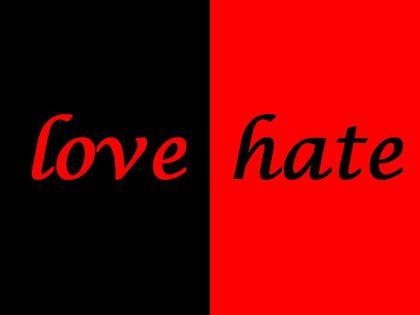
I think passion has lots of different connotations, both positive and negative. Some passions are conscious and others lurk below our mind’s surface. They can be enriching and growth-inducing or deleterious and damaging to our health. Passion can be enthusiasm and avid devotion. It can be overwhelming in both rage and love. It can be intense sexual attraction. It can be vehemence and anger. Probably it’s combinations of a wide range of feelings and this can be very confusing. I know that I’ve felt all types of passions ever since I was a little kid.

When I was about five, I got a chameleon. I loved it so much I squeezed it to death. What a horror. I was way too young to understand the implications of the potential for destruction associated with a positive feeling. But I learned more and more about that as I grew up. My parents told me I was born loving everyone and everything and that people loved me back. My mom said she was afraid someone might steal me, most particularly my dad’s sister, someone she detested. My older brother told me he first remembered being truly happy when I came along. Sad for him but good for me. I did love so many things with a passion. I loved my parents. I loved warm milk. I loved animals. I loved fudgsicles and chocolate popsicles. I loved playing outside. I loved school and school supplies, especially crayons, erasers and glue. So I guess I started out with my fair share of passions.
As I got older, I extended all that passionate love to people. I loved my friends. I started to love boys. I loved sports and movies. I loved justice. So much passion. It wasn’t long before I started getting knocked around by reality. Reality was that just because I loved what I loved didn’t mean that I was going to reap big returns on my passionate investments. I loved school but after 9th grade, it mostly bored me to death and as I went off on my own to learn, my grades tanked. I had just enough natural talent to take me into college but nothing about that structure worked any better for me at that level.
Then I realized that the just world I dreamed of may as well have been in a galaxy far, far away. The disappointment from that discovery ignited my negative passions which are still going strong today. Always something to be furious about and to fight against. Fuel for my engine.
I loved participating in sports but that brought me negative attention. I wanted to be an attractive girl but my youthful participation brought me the nickname “moose” which had a profoundly negative effect on the joy I found as an athlete. In my junior year of high school I cut 60 PE classes and as a senior, had to make them all up, two for one, in order to graduate. On swimming days, I was soaking wet on and off for hours. But I still loved sports although I became more of an observer rather than a participant. I still have my swimming but at one point I dreamed of smashing home runs and spiking volleyballs for a long time. I made it back to volleyball as an adult, playing while pregnant. Maybe that vibe is why my daughter turned out to be an exceptional athlete in a time that was somewhat kinder to women than the days of my youth. Although not yet kind enough. But let me stay on track here.

I was a passionate friend and potentially a passionate girlfriend when I was a kid. I fell in love easily. And I stayed there. There’s another component to my particular brand of passion – loyalty. My husband and my kids always told me I was the most loyal person they ever knew. That’s probably a fair assessment. Once committed to someone, at least in my own mind, if not in actual practice with the person I’ve sekected, I stayed put. I’m hard to get rid of once I’ve made my choices. Despite the fire that burns in me so frequently, I’m not the type to flame out. My burn is slow and long-lasting. A lot of disappointment and pain have to happen before I walk away from someone. I guess it’s fair to say that I have personal standards of how people should treat one another, my rules, for sure. But I’ll bend and accommodate for a long time before I give up on a person. Over the years, I’ve developed what I call my permanent list. I have occupants on that list who said or did something egregious enough so that I know I’ll never forget it, at least as long as my brain is functioning. But for the most part, that list is of those individuals who are beyond my forgiveness. I know that’s not a very politically correct attitude in current culture. Forgiveness is a real thing advocated around me. Being unforgiving is supposed to be bad for you, toxic and unhealthy.
Your Greatest Strength

1
Social intelligenceBeing aware of the motives/feelings of others and oneself; knowing what to do to fit into different social situations; knowing what makes other people tick.VIRTUE CATEGORY: HUMANITY

24
Forgiveness Forgiving those who have done wrong; accepting others’ shortcomings; giving people a second chance; not being vengeful.VIRTUE CATEGORY: TEMPERANCE
I took a personality trait test from a Yale-sponsored class a few months ago. You answer all these questions and a list of your character traits ranked from best to worst is generated. My best trait was emotional intelligence, followed by loyalty and my worst was the inability to forgive. Sounded right. And it works for me. Michael was always trying to get me to let things go and be more forgiving. He said my hot rage and grudge holding was going to damage me physically. Well, look who’s still here and who isn’t? I’m living on the terms that suit me.
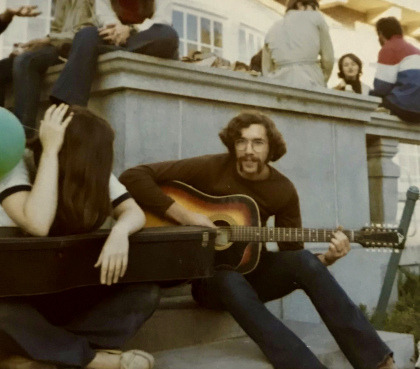
I guess I got the most bashed around emotionally by my first serious college boyfriend. I thought I was going to marry him. The truth is, I thought I was going to marry everyone I ever loved, going all the way back to when I was five years old. But this was the first genuinely reciprocated love I’d felt as a grownup and despite warning flags about not being ready and immaturity, I was convinced that if I fought hard enough, I could make this happen, even with evidence to the contrary popping up regularly and painfully. We were together on and off for three years. One morning after feeling that we’d had the best night of our life, I woke up to him telling me that we needed to break up and that things just couldn’t work. I was astonished, hurt and enraged. As he made his way out of my apartment, I followed him into the street, screaming at the top of my lungs that he would never find anyone who loved him the way I did and that he’d regret this decision for the rest of his life. My roommate and another friend dragged me back into the house as his metallic blue Chevy Hornet pulled away.
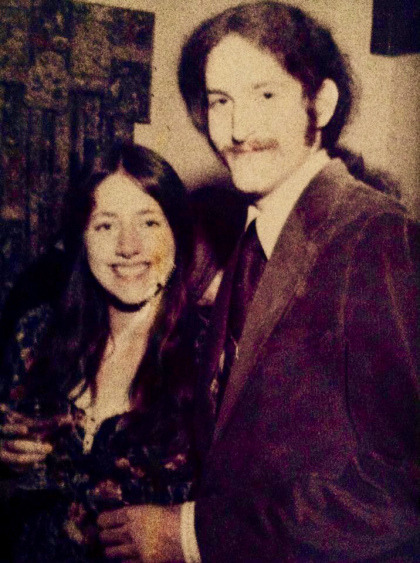
The fact is, he did figure that out later but by that time, I’d mostly recovered and was with Michael with whom I spent the rest of his life. Sadly, not the rest of our lives. Michael helped me rebuild myself and to believe that I could trust someone and reestablish my belief that a lifelong positive passion was possible. I’d already figured out that I could hang on to my negative passions about feminism, politics, economic justice, the health of the planet and the like. But I wasn’t sure about people. One of the places I put my positive passions was to sports, both teams and individuals. I could afford to invest myself in those without personal disappointments that had left me flattened and despairing. I picked my loyalties and stayed with them. I had favorite teams and players. I watched everything, football, basketball, hockey, swimming and became an Olympics junkie. As time went on I added tennis and soccer. I still remember the uniform numbers of those individuals who for whatever reason, won my heart. Jean Beliveau, #4 – Montreal Canadiens. Doug Mohns, #11 – Chicago Blackhawks. Doug Buffone, #55 – Chicago Bears. Fred Biletnikoff, #25 – Oakland Raiders. I could go on and on. A lot of my friends were surprised that I was so into sports, as many of them, particularly the contact ones dominated by males, seemed in direct conflict with my feminist politics. But I didn’t care what it seemed like. My personal passionate commitments had cost me a significant amount of emotional angst. I think I was born with a fairly deep reservoir for giving but I’d come to realize that when I put myself out there, I’d best be prepared to be doing it because I needed to for me and not because of what I expected in return. I’d had a lot of disappointment from family, friends and lovers. With sports, the worst that could happen was that your favorites could lose. The pain threshold for those things was tolerable for me, easier than all the personal disappointments. At least, it always had been for many years. When the silent switch happened, I really wasn’t aware of it at all. I’ve only just figured out that my lines had gotten blurred below the surface of my consciousness because of what life dealt out to me. I was too busy in the living of it to recognize that I’d set myself up for a whole new undoing.
So these sports. As a Chicagoan and a southsider, I loved the White Sox. I branched out and embraced the Cubs. I was a hockey fan and I sat with my dad as he agonized over DePaul’s basketball team. Except for golf, I’d watch almost anything. Eventually, tennis got my attention. I watched the women, Billie Jean King, Chris Evert, Martina Navratilova, Steffi Graf and of course, finally Venus and Serena. I admired their skills and grit. But I always loved the boys and most particularly, the ones who behaved well, rarely had tantrums or broke their rackets and in general, seemed to play against that spoiled brat type. No John McEnroes or Ilie Nastases for me.
I liked the cool Swede Bjorn Borg, who played like a smooth machine. After him, it was Pete Sampras, who was just a kid when he started and had a long 14 year career, complete with those beautiful serves and the tenacity to keep playing after vomiting on the court from sickness and dehydration. The civilized guys. I made an exception for Jimmy Connors sometimes because he had high entertainment value. There were a few Australians thrown into the mix and the Croat Goran Ivanisevic who had sporadic talent but took forever to win the big tourney. But in the middle of Pete’s reign, Roger Federer appeared on the scene. And that was all she wrote for me.
Federer broke into the big time as a teenager and was kind of a punk for awhile. But the tragic car wreck death of his Australian coach when he was 21 was a life changing event for him. Between that and his relationship with his older girlfriend who eventually became his wife, he pulled himself together and became who he is today, a brilliant champion, a genuinely loved public figure and a generous philanthropist. In short, my favorite tennis player.
Federer’s been playing for 21 years. I’ve watched him countless times and always enjoyed his grace, elegance and tenacity. For most of those years I watched him and the other players during the four major tournaments, the Australian Open, the French Open, Wimbledon and the US Open. There was a lot of other tennis happening off my radar, many tournaments and point systems for rankings. I didn’t really care about that stuff. I was happy with what I saw, read articles so I had some idea of the background for the majors, and was generally content.

When Michael got sick seven and a half years ago, that was where I was at. As we processed his disease and what we knew would be a limited future, I was trying to get a handle on interests that would distract me from the constant pressure of anticipating death. Michael liked tennis too and had played for years as a young man. Often we watched matches together. But as time went by and we rode the waves of anxiety, I started to seek out more and more information about tennis. We’d switched cable tv providers and the Tennis Channel was included in our package. I realized that there were all kinds of tournaments and that Roger participated in lots of them. He was famous for holding records in places that had never crossed my radar. And we had a DVR. I started taping everything. When I had nothing to do, I started watching more tennis. I liked other players but Roger was the one. As the months of Michael’s illness progressed, we both labored under the strain of wondering how much time we had left to enjoy our life. Sometimes I drove my reserved husband crazy, wanting to talk through everything all the time. He was in treatment, often tired and in need of rest. I had lots of time on my hands but I wanted to stay nearby, soaking in every minute of life with Michael. So I turned to the box where Roger waited in the DVR. He was such a joy to watch. Healthy, easy and an amazing contrast to my precious guy who was carrying such a huge load. Over time, I decided that who needed a DVR when you could set an alarm and watch a tournament live from Australia, China or the Middle East? We didn’t really have a normal routine or schedule any more so I could make my own hours. As years went by, Federer’s wins or losses began to affect me more and more. The worst time came in 2016 when he sustained a knee injury while bathing one of his kids. He decided to withdraw from the professional tour for months while he rehabbed thoroughly and tried to decide if he could return and play at the championship level again.
I was worried about it but at the time I was really focused on the stretch of good health Michael was enjoying so we took advantage of an excellent fall and traveled a lot. I had concerns about some signs of immune system letdown in Michael but as late as December, 2016, we were in our happy place at Starved Rock and life seemed even and predictable. Unfortunately that languorous period was short-lived. By the first week of January, Michael’s behavior was unusual. His appetite was diminished and he had some odd moments when he wasn’t making a lot of sense. We went in to see our oncologist who did some bloodwork and ordered a scan. Everything came back clean. So on we went. Things got stranger and stranger. I began to believe that there was an occult return of Michael’s cancer and began a nagging process that drove him nuts. He wanted to leave well enough alone and I didn’t. We began bickering. Right around the same time, Roger was getting ready to emerge from his medical exile and enter the Australian Open.

As days went by, Michael’s behaviors became odder and odder and I kept dragging him back to the doctors. Meanwhile, Roger was winning match after match. I was up in the night, watching him in real time and trying to avoid arguing with Michael who was annoyed with me. The doctors kept finding nothing. On January 29th, 2017, I had the pleasure of watching Roger win his first major since being injured.
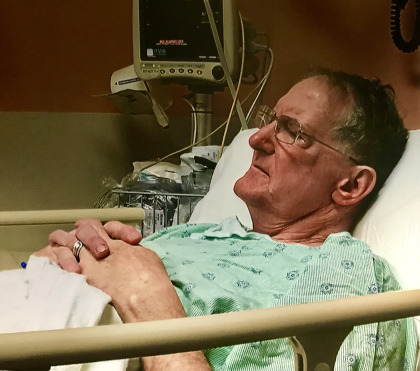
On January 31st, I prevailed upon Michael to let me bring him to the ER to see if we could get him a brain MRI, the only test he hadn’t had. By that night we had the dreadful diagnosis of carcinomatous meningitis, a rare manifestation of certain solid tumors that’s becoming more common as people survive their original cancers for longer periods of time. We were devastated, Michael even more than me as he’d believed the continuing positive reports while I knew something was terribly wrong. We had a 32 day siege in the hospital and then I was able to bring him home in early March. The median survival time for this disease was 4 weeks from diagnosis. Michael hung on for almost seventeen.
Meanwhile, the French Open began close to the end of Michael’s life and I continued to watch through June 11th. I remember thinking how ironic it was that Roger’s playing bookended the last months of Michael’s life. When July came, along came Wimbledon. I watched all of it and Roger emerged victorious. That highlighted my summer of preparing for the celebration of Michael’s life which was planned for December. When that was over, I stared down 2018, trying to figure out what to do with myself. I started this blog on January 1st. I was in the midst of planning my 50th high school reunion and also wanted to do a little traveling.
I finally landed on the Western-Southern Open tennis tournament in Cincinnati, a chance to see Roger in the flesh for the first time. As he was getting older I figured I’d better get that bucket list item done. Additionally, the Laver Cup, Roger’s creation was happening in Chicago, at the same time as my reunion.
I bought tickets to that as well. Both events were wonderful and I was so glad I went. Roger won some and lost some and I felt satisfied. But as time passed I found watching him, especially when he lost, to become more and more stressful. I was aware of the negative feelings but not sure what to do about them. Each match got worse and worse. This was not supposed to be my relationship with sports. I was irritable, frustrated and hostile. I could barely stand being with myself. When my son was around he tried to be comforting but I was basically so obnoxious he’d wind up leaving me to my own devices. I started thinking really hard, going back over the seven and a half year history of Michael’s disease, death and this mourning period. A lot has happened to me during that time. I spent a lot of emotional capital during those years. I spent an extraordinary amount of love on my marriage, so much that I often wonder if I can love anyone or anything new ever again. Even a pet. And then just this past week in the midst of an ugly US Open for Roger, I recognized what I’m referring to as a silent switch. Somewhere back there, as I recognized that my time with Michael was running away, I put a lot of my heart into Roger, a sports guy who was supposed to be a distraction, not someone personal. As his fortunes ebb and he gets closer to retirement I realized that my outsized reactions are more like living through an intimate loss instead of just watching an athlete’s life come to its normal conclusion. I realized that I’d transferred some of my feelings about Michael’s absence to a weird anticipatory despair about Roger’s career coming to an end. How bizarre is that? Probably not very. Roger’s trajectory is another ending, a metaphor for what I’ve been coping with for a very long time. I didn’t recognize exactly when it happened but I know it did. And acknowledging the inappropriate outsized reactions I was having helped me see the need to face this metaphor for what is – a familiar road twisted into an inappropriate level of importance. It’s time to set it back in a more normal place. Ironically, during this week of internal probing and exploring, I’ve been outside in my garden a lot. I had no trouble identifying two adult butterflies, feeding, still strong but battered by predators, perhaps by wind. But still living out there in the world. I was aware that I identified with them. No silent switching in this case. Awareness is hard and often mysterious. I’m going to keep going after it. It’s better than living in the dark.
The Silent Switch I wonder if all people are born equipped for life’s passions. And if they are, is the capacity for them the same for everyone?
0 notes